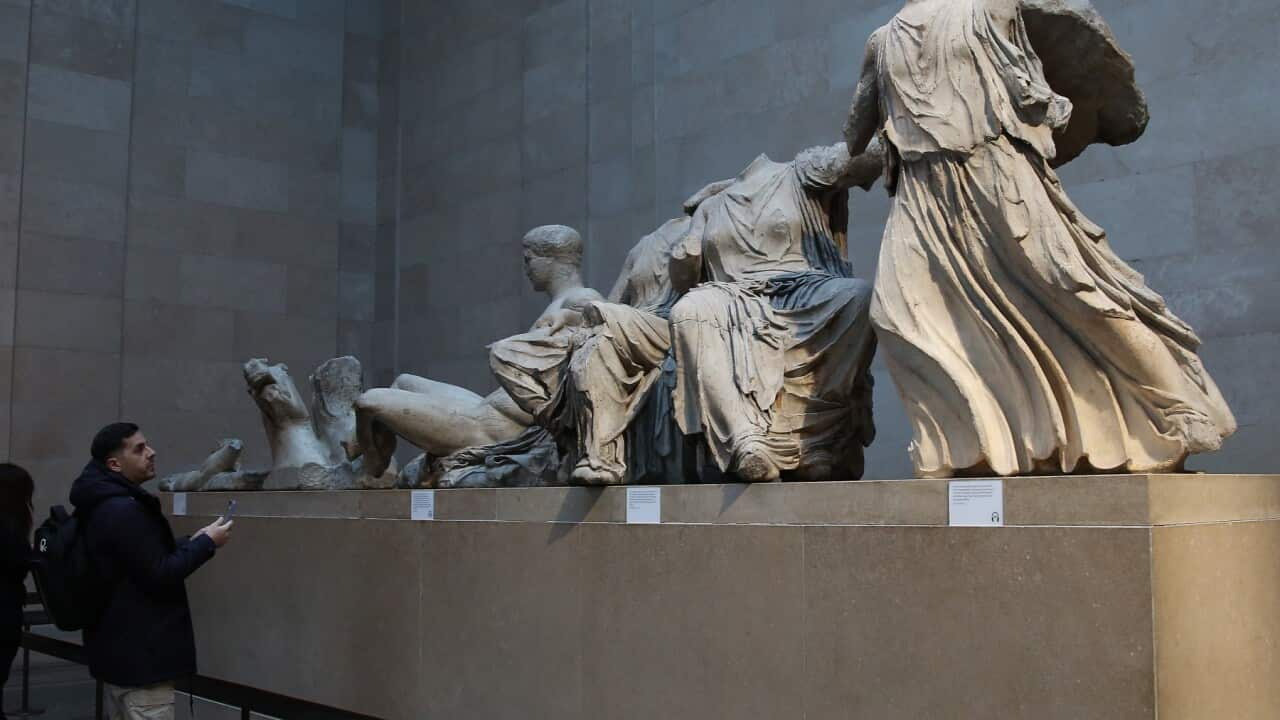TRANSCRIPT
A diplomatic spat over the hotly contested Parthenon Marbles was set to be addressed in a meeting in London between the UK Prime Minister Rishi Sunak and his Greek counterpart Kyriakos Mitsotakis.
The British leader cancelled the meeting a few hours before its scheduled time, a move that Mr Mitsotakis says caused his annoyance.
The British government instead offered Mr Mitsotakis a meeting with Deputy Prime Minister Oliver Dowden, an alternative he rejected.
U-K Transport Minister Mark Harper says it was regrettable that the Greek leader turned down the offer.
“It's a regret that the Greek Prime Minister wasn't able to take up the meeting with the Deputy Prime Minister but that was offered and obviously the Deputy Prime Minister would be very happy to talk through a number of the important issues facing both of our countries today.”
The cancellation comes just days after the Greek Prime Minister's appearance on British television.
Speaking to the BBC, Mr Mitsotakis made this comparison when referring to the situation with the Elgin Marbles.
“It's as if, if I told you that you would cut the Mona Lisa in half and you would have half of it at the Louvre, and half of it at the British Museum. Do you think your viewers would appreciate the beauty of the painting in such a way?”
A representative of Mr Sunak reacted to the statement saying the Marbles were legally claimed and belong to the Museum's administrators.
However, according to recent polls in the UK, the British public believes it was the wrong move by the British Prime Minister to cancel the meeting.
“It needs discussion and it needs a solution. Whether the solution's loaning it or giving it back, I'm not qualified to say.”
Greek Foreign Affairs minister Giorgos Gerapetritis says there were other important issues on the agenda.
“I have to say though is, again, that it's a matter of principle that we discuss. It (Elgin Marbles) was not the one and only thing that we came here to discuss. We had a very strong agenda and we discuss with many people.”
Created in the fifth Century BC, the Parthenon temple on the Acropolis in Athens sits incomplete.
Parts of friezes that adorned it have been displayed at the British Museum instead for more than two centuries.
The sculptures, also known as the ‘Elgin Marbles’, were removed by British diplomat Lord Elgin with the consent of the then-ruling government in Turkey.
Ancient Greek historian Steve Kershaw says there are no surviving documents that confirm this.
“The problem that we have with the paperwork is that none of this survived, none of it was perhaps kept or archived. So, digging back into who was allowed to do exactly what and when is quite a tricky problem for everybody.”
The British Museum is banned by law from giving the sculptures back.
Talks between the museum and Greek officials were held last year to discuss a potential loan arrangement.
But Mr Mitsotakis says little progress has been made in these talks.
“We have not made as much progress as I would like in the negotiations. But again, I'm a patient man and we've waited for hundreds of years and I will persist in these discussions.”
The Marbles are not the only artefacts in the museum's vaults under scrutiny.
Thousands of artworks and cultural relics taken from all over the world are wanted back.
Not least here in Australia.
In a post on its website, the National Museum of Australia says the major federal, state and territory museums have become increasingly active in the repatriation of Aboriginal and Torres Strait Islander ancestral remains and sacred objects over the past 20 years.
It says the Australian museum industry is now internationally recognised as a world leader in this area, even though, just 20 years ago, most heritage professionals in this country opposed the idea.













